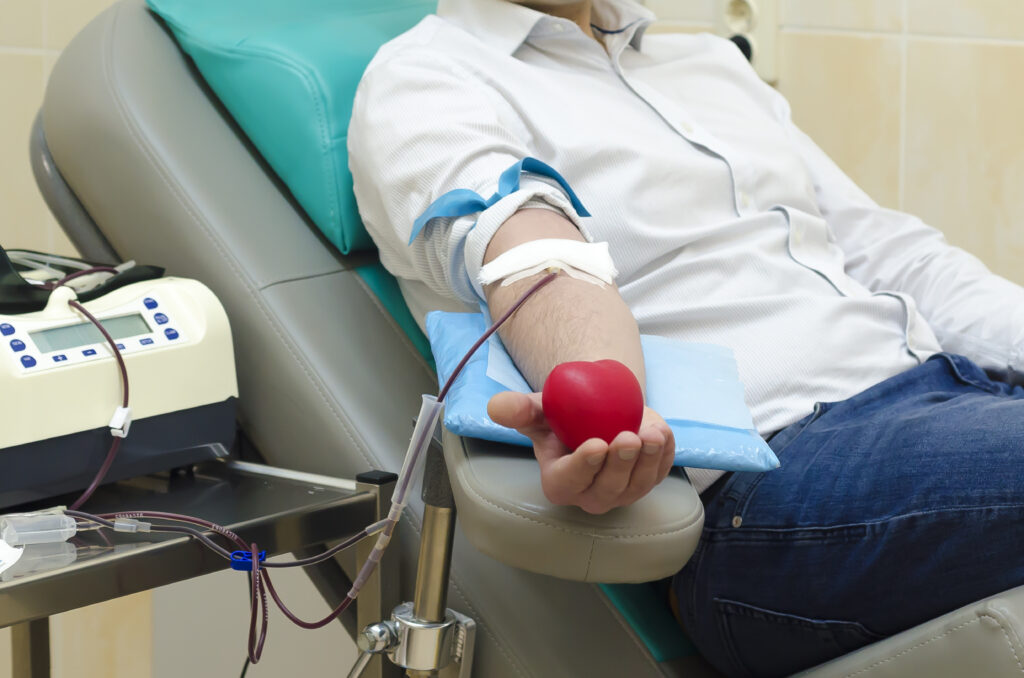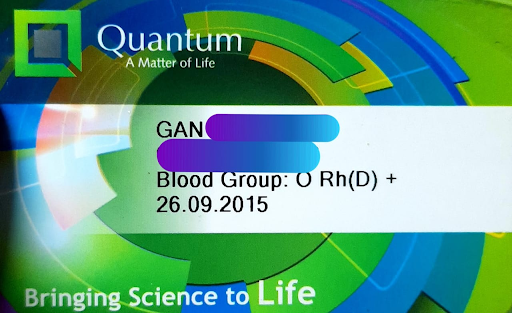- Home
- Health Center
- Health Info
- Thinking About Donating Blood? Here’s What You Need To Know
Thinking About Donating Blood? Here’s What You Need To Know


Everyone of us has different blood types too: Type A, B, AB, and O.
Blood drives are organized to collect blood that will help people of all ages: burn victims, those that undergo surgery, cancer patients1. The amount of blood collected from the blood donor depends on their weight. The volume of blood that is usually donated is 450mL, which is less than 1 pint of blood (568mL).
Matching Blood Types2
The donor and recipient must be compatible. O blood are universal donors, whereas AB blood are universal recipients. Refer to the table below to see their compatibility.

Image 1: Blood Type Compatibility Chart
Tips On What To Do Before, During And After a Blood Donation3
Before:
- Eat healthy. Avoid greasy and oily food.
- Take iron-rich foods: red meat, poultry, green leafy vegetables, iron-fortified cereals, and dried raisins.
- Stay hydrated, drink at least 8 glasses a day.
During:
- Drink an extra glass of water or non-alcoholic drink before your appointment.
- Wear a shirt with sleeves that can be rolled up above your elbows easily.
- Bring your donor card and identification card.
- Inform your prescription medicine, over-the-counter medicine, underlying medical condition to the medical attendant.
After:
- Continue to stay hydrated. Drink an extra four glasses of liquid.
- Avoid any alcoholic drinks for the next 24 hours.
- Keep the strip bandage on for the next several hours.
- Don’t do any heavy lifting, vigorous exercise for the day.
- Have plenty of rest.
- Continue eating iron-rich foods.
- If the needle site starts to bleed, apply pressure and raise up your arm for 5-10 minutes or until bleeding stops. Seek medical attention immediately if the bleeding does not stop.
- Take multivitamins and iron supplements if you donate frequently.
Who Are Suitable And Not Suitable For Blood Donation4

In case of any medical emergency like blood loss from a car accident, it’s important to carry your medical card or donor’s card with you at all times so that immediate treatment can be initiated.
Importance Of a Medical Card

Image 2: An Example of a Blood Donor Card
Every drop counts. If you are interested in becoming a blood donor, you can register at the Malaysia Blood Bank website or call them at +03-26132657.
References
- Jenis-jenis pendermaan. Pusat Darah Negara (PDN). Updated on 18th January 2018. (Online) (Accessed on 13 August 2021). Available at: https://www.pdn.gov.my/index.php?option=com_content&view=article&id=167&Itemid=141&lang=ms
- Facts about Blood and Blood Types. The American National Red Cross. Updated on 2021. (Online) (Accessed on 13 August 2021). Available at:https://www.redcrossblood.org/donate-blood/blood-types.html
- What to do Before, During and After a Donation. The American National Red Cross. Updated on2021. (Online) (Accessed on 13 August 2021). https://www.redcrossblood.org/donate-blood/blood-donation-process/before-during-after.html
- Blood Donor Eligibility Criteria. University Malaya Medical Centre. Updated on 2020. (Online) (Accessed on 13 August 2021). https://www.ummc.edu.my/pesakit/blood-CRITERIA.asp?kodBM=
Latest Health Info
Brave the Cold: Winter Travel Needs
Winter travel has its kind of magic — snow-covered landscapes, cozy lodges, hot drinks, and festive markets. But traveling in ...
Beat the Heat When Travelling
Whether you’re on a scenic beach vacation or exploring a busy city, hot weather can quickly wear you out and ...
Got Pins & Needles? Learning about Diabetic Neuropathy
Diabetic neuropathy is a common yet serious complication of diabetes, estimated to affect up to 50% of people with the ...



